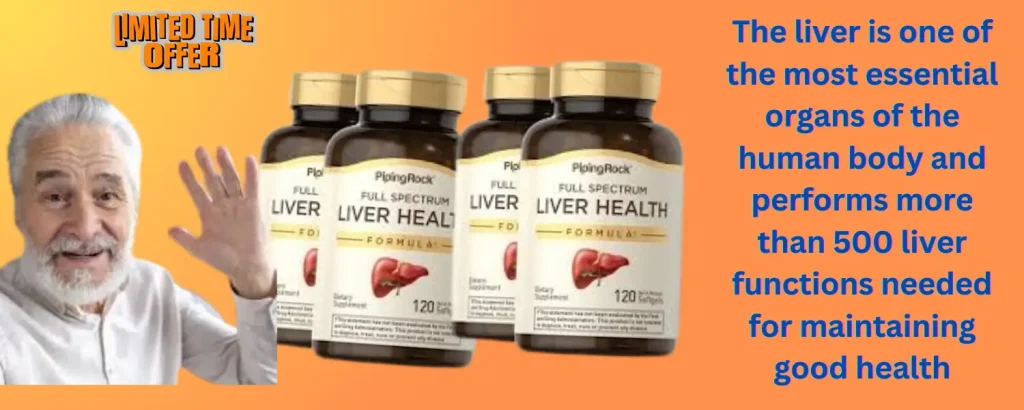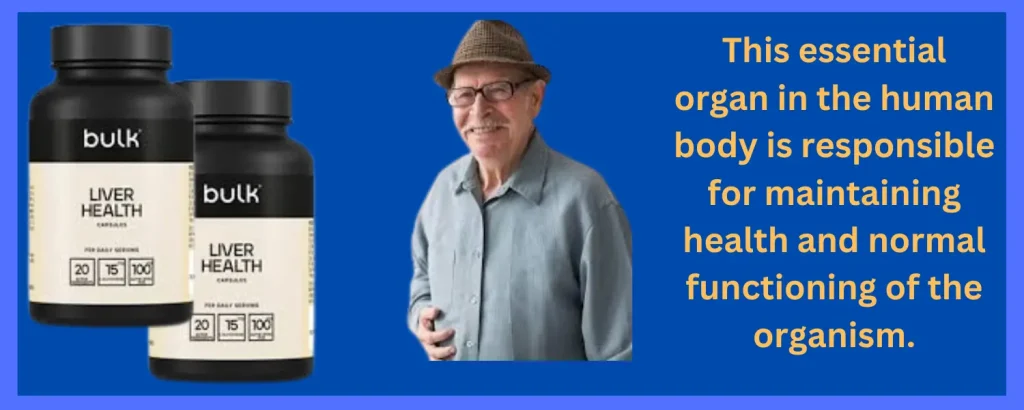Introduction to Liver Health
This essential organ in the human body is responsible for maintaining health and normal functioning of the organism. The liver is a natural detoxifying organ that breaks down nutrients consumed in our diet, removes ’bad’ substances from our system, and synthesizes proteins required for the performance of several body functions. It has an essential metabolic role of producing bile, which helps in digestion, especially fats, and thus it is imperative. It also helps to regulate blood sugar levels to maintain energy homeostasis.
But unhealthy diets, abusive use of alcohol, environmental pollution, and lack of exercise are some of the indices of modern lives that often call for tremendous stress on the liver. Some diseases that may be developed by the contribution of these factors to liver damage include hepatitis, cirrhosis, and fatty liver disease.
As far as the general health is concerned, liver health is mandatory. This can be accomplished by

How Does Liver Health Work?
The liver is the single most valuable organ; it is a determinant of general health and balance, given that it performs a number of functions that total over three hundred. It receives and metabolizes all that you take in through your mouth, be it food, drinks, medications, or even toxins, and constitutes the body’s primary elimination organ. It metabolizes toxins in the blood either by converting them to forms less toxic or by preparing them for excretion via urine or feces.
By producing what is known as bile, which cumulatively helps in the digestion of fats and the absorption of fat-soluble vitamins such as A, D, E, and K, it has a key role of providing digestion. The liver also metabolizes carbs since it converts glucose into glycogen; it also releases the glycogen into the body’s bloodstream when there is need. It also decomposes proteins and gets rid of ammonia, which is a by-product of protein digestion, converting it to urea, which the body can How release.
to Support Liver Health
Purity of the tissues of the respective organ signifies the overall health of the organism and therefore the liver health. With positive changes in lifestyle, you may help your liver function that much better and protect it from damage. Start with a recommended diet of lean protein, healthy grains, fruits, and vegetables to take. Detoxifying and antioxidant-rich foods, some of which include spinach and other dark green leafy vegetables, garlic, turmeric, and berries, among others, are good for the liver.
Staying hydrated is equally as important because water, which has a way of ridding the body of toxins, is needed. Avoid foods that have been processed, fizzy, and alcoholic because these will exert pressure on the liver. This, in turn, helps the person protect him- or herself from fatty liver disease because exercise helps one keep off the extra pounds.
A number of drugs are toxic to the liver, so it is essential that they be taken responsibly and in the appropriate doses. Regular health examinations

Benefits of Maintaining Liver Health
The liver is hugely important in the body as it plays so many different roles that are required for overall good health. A healthy liver ensures perfect detoxification, which makes it easy to expel fatal endotoxins and toxins from the circulation. This minimizes the chances of experiencing headaches, fatigue, or any symptom that is a result of toxicity within the body.
A healthy liver helps with digestion since the bitter fluid produced in the liver—bile—is essential for fat digestion and the absorption of fat-soluble vitamins A, D, E, and K. Also, balanced metabolism is provided with the healthy work of the liver, which regulates energy levels, fat in the body, and blood sugar levels.
As the liver has the role to filter out the germs and viruses within the blood, a healthy liver improves the immune system. It also maintains good hormone levels and improves skin condition since it eliminates accumulated toxins that lead to acne formation.
Does Liver Health Have a Money-Back Guarantee?
As one way of meeting their customer satisfaction, many liver health supplements and products companies offer their customers money-back guarantees. These assurances can be said to be aimed at building the confidence of the user and making the consumer have confidence in the product. A money-back guarantee usually means that you can ask for a return within a certain time frame if, having used it as it is supposed to be used, you didn’t find it effective.
That is to say, according to the seller or manufacturer, elements of the guarantee are different. Some companies offer a 30-day warranty, and others amplify it to 60 and 90 days of warranty in an effort to allow customers more time to experience changes. Customers have to return the part of the product they have not used and, in most cases, have to produce the receipt as evidence of the guarantee clause.
When contemplating a

Why Should You Take Care of Liver Health?
The liver is one of the most essential organs of the human body and performs more than 500 liver functions needed for maintaining good health. Especially liver health is imperative for the most optimal digestion, metabolism, detoxification, and overall well-being. The liver has the responsibility of purging body toxins and removing them from the body, as it also stores essential vitamins and minerals in the body and helps in the digestion of nutrients in the foods consumed.
In essence, a healthy liver ensures that there is a correct control of blood sugar level, efficient fat balance, and correct production of bile to aid digestion. In addition, a workable liver clears the blood of toxins, promotes the skin’s health, and supports the immune and endocrine systems.
They have values that may be diminished by major issues such as cirrhosis, hepatitis, or fatty liver disease that stem from poor management of liver care in today’s society. modern lifestyles
Conclusion on Liver Health
A key body part, the liver plays a vital role in digestion, metabolism, detoxification, and other body functions. It is therefore important that the body’s liver is healthy so that it can effectively perform its function of breaking down nutrients, expelling wastes, and regulating life’s physiology. It is a fact that a healthy liver yields brighter-looking skin, an enhanced immune system, balanced energy, and the right flow of the digestive system.
Hepatitis, cirrhosis, and fatty liver disease are dangerous diseases that can affect general health if the liver is not maintained properly. Some ways that you can support and sustain the liver’s health include taking a diet plan, water replenishment, regular exercises, as well as the avoidance of hazardous products such as processed foods and ethanol alcohol.
Preventable action today ensures that in the near future people will not suffer from absolute fatigue; the liver will perform all the vital functions.
